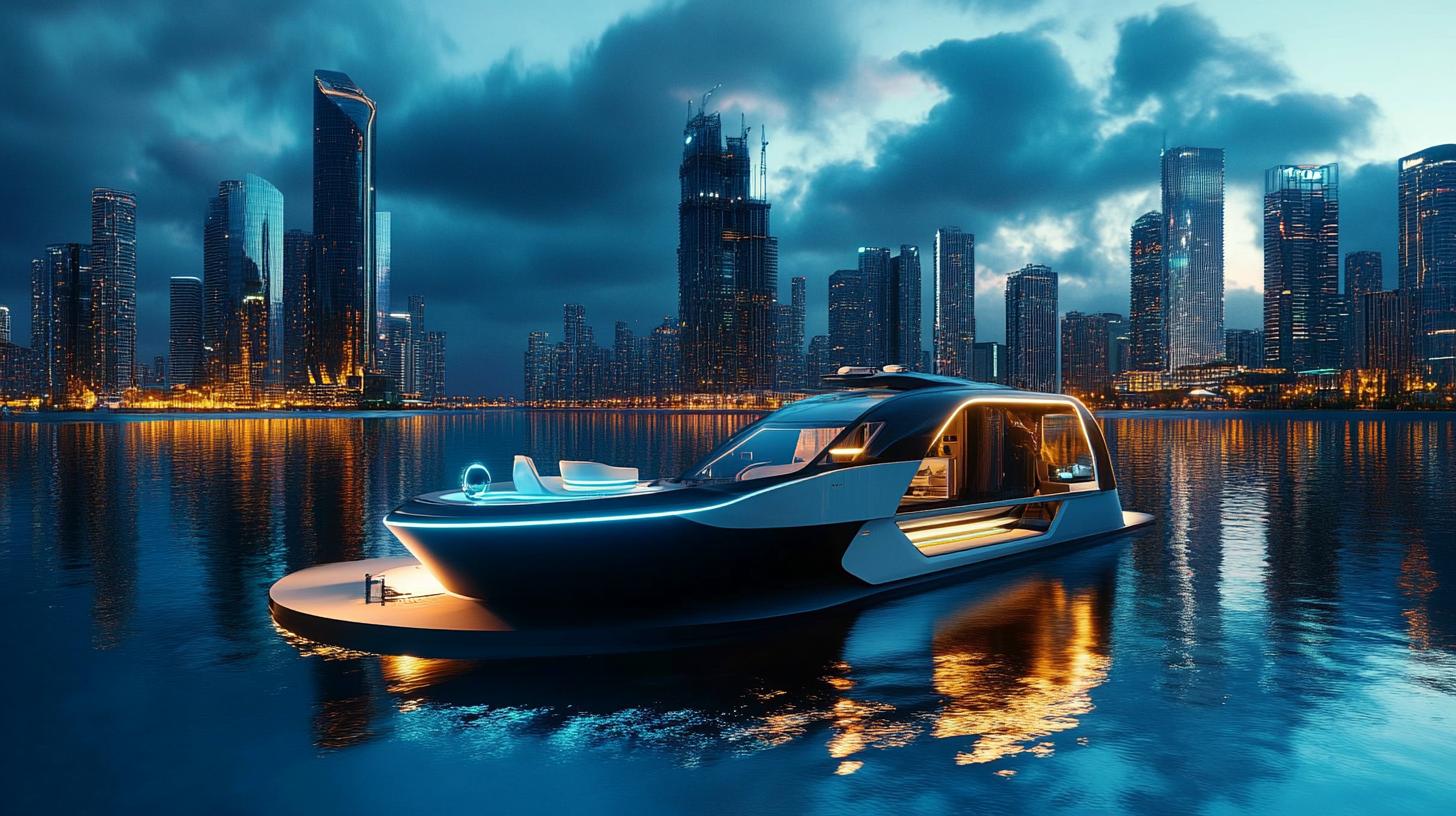The maritime world is set for a significant transformation with the skyrocketing growth of the electric boat market. Valued at $5 billion in 2021, the market is projected to surge to $16.6 billion by 2031, reflecting a robust annual growth rate of 12.9%.
Europe is currently at the helm of this market expansion, mainly due to its governments’ dedication to slashing emissions and investing in innovative, zero-emission technologies. Manufacturers are fervently working on breakthrough battery technologies, aiming to enhance the performance and range of electric boats.
Government and private sectors are channeling substantial investments into the research and development of advanced battery systems and electronic components. Coupled with evolving infrastructural support for charging electric boats, these efforts are laying a strong foundation for the market’s future.
Recent advancements in battery technology have shifted the focus onto lithium-ion batteries, renowned for their lightweight, high capacity, and decreasing cost. Such features have accelerated their adoption, overshadowing older technologies like lead-acid batteries with higher self-discharge rates.
Moreover, the advent of autonomous electric boats, especially in countries like Germany, stands to complement this growth trend further. However, certain challenges remain, including battery range limitations and the high initial costs of electric boats. Nevertheless, expanding charging infrastructure and steadfast governmental support are paving the way for broader adoption and technological advancements.
In North America, the sector is expecting the fastest growth rate in the coming years, driven by propulsion expansions in electric boat use, marking a new era in maritime activities. The recreational boating and fishing sectors have rebounded strongly post-pandemic, highlighting the public’s growing interest in eco-friendly water adventures.
The Silent Seas Revolution: How Electric Boats are Shaping the Future
Electric boats are not merely a trend; they symbolize a profound shift in maritime technology and environmental consciousness. With projections of the market growing to $16.6 billion by 2031, these vessels are silently cruising into a future that prioritizes sustainability. Beyond the obvious implications for emissions reduction, the surge of electric boats brings with it a host of technological, economic, and societal impacts that are reshaping the future of humanity and innovation.
Unexpected Technological Advancements
One of the most significant but less discussed developments is the potential for electric boats to spearhead advancements in battery technology. These innovations could trickle down to various sectors, from automotive industries to consumer electronics, offering more efficient and longer-lasting energy solutions. Lithium-ion batteries, currently at the forefront thanks to their lightweight and high-capacity attributes, are evolving rapidly, which may soon surpass even the most optimistic expectations.
Pros and Cons of the Electric Boat Revolution
While the benefits, such as reduced noise pollution leading to less marine disturbance and lower carbon emissions, are substantial, there are challenges that must be navigated. Chief among these is the question of battery range. While strides are being made, many electric boats still struggle with limited travel distances compared to traditional fossil fuel-powered counterparts.
On the flip side, the introduction of more autonomous electric boat technology could revolutionize both commercial and leisure maritime activities, paving the way for smarter and safer ocean journeys. However, this raises concerns about cybersecurity risks, as increased connectivity can lead to vulnerabilities if not managed correctly.
Addressing the Cost Barrier
Another hurdle is the high initial cost of electric boats. Although this is gradually decreasing as technology advances, it remains a significant barrier to widespread adoption. Governments and private sectors must work together to offer incentives that make eco-friendly boating more accessible to the average consumer.
Questions for the Future
Can electric boats fully replace traditional motorboats? While it’s possible, the transition will likely be gradual and accompanied by hybrid solutions. Incentives for research in renewable energy sources and investment in infrastructural development, such as extensive charging networks, are crucial for this transition.
Will these advancements in maritime technology inspire similar shifts in other transportation sectors, such as aviation? The potential is certainly there, but unique challenges in each sector will determine the timeline and feasibility of such shifts.
The Bigger Picture: Societal Impact
Aside from technological advancements, electric boats promise broader socio-economic impacts. They offer quieter, fume-free experiences for fishers and leisure seekers, increasing demand for eco-friendly tourism and recreation. This, in turn, may bolster local economies and promote sustainable activities.
For more insights into electric boat technology and developments, consider visiting the main domains of reliable sources such as National Geographic or Reuters.
The electric boat market’s growth promises a cleaner, quieter future for our waterways. As these innovations continue to unfold, they present opportunities and challenges across industries, calling for thoughtful approaches to harness their potential for a sustainable and technologically advanced tomorrow.







